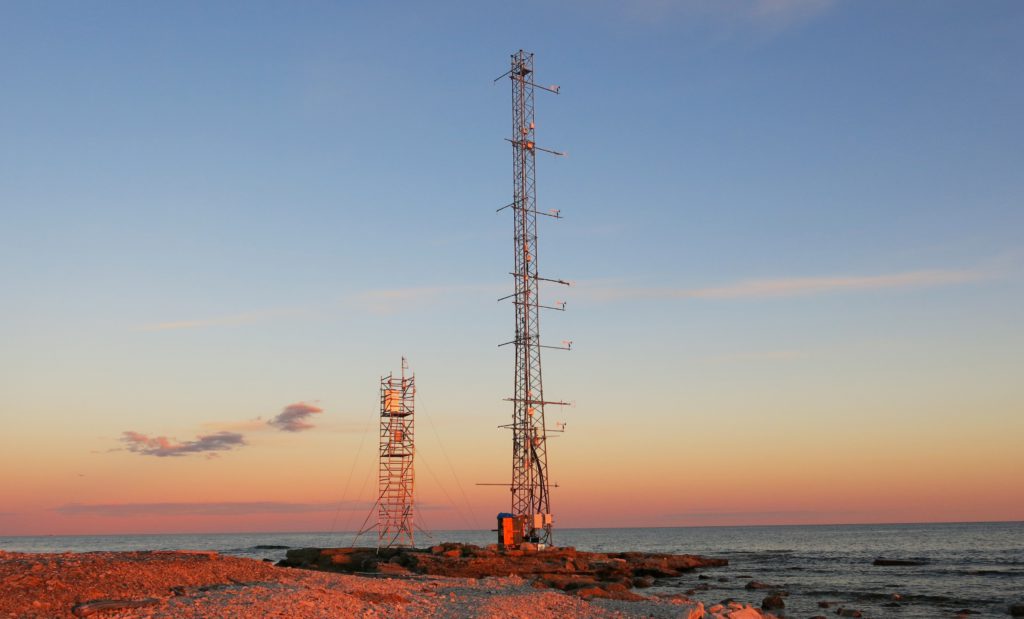The Higher Education Act states that in their operations, universities and other higher education institutions must “promote sustainable development to assure for present and future generations a sound and healthy environment, economic and social welfare, and justice.”
The most important contribution Uppsala University makes to sustainable development is through our students and our researchers. Educational initiatives such as the Joint Nordic Master Programme in Environmental Law, the course Global Challenges and Sustainable Futures, and the Master Programme in Sustainable and Innovative Natural Resource Management, provide our students with knowledge and tools to tackle sustainability issues on a scientific basis.
All our outstanding research in areas such as battery and solar cell research, earth sciences, antibiotic resistance, environmental law, and peace and conflict research gives us unique opportunities to contribute to new solutions to current and future challenges. We are conducting exciting research projects on the environment and conflicts, sustainable IT, water purification, sustainable and renewable energy conversion, natural disasters and climate change (extreme weather in coastal zones), pharmaceutical residues in drinking water and global health – to name a few examples.
Uppsala University Sustainability Initiatives is a new project for multi- and interdisciplinary research initiatives focusing on sustainability. The first of these initiatives, named Climate Leadership in Society and Higher Education, is under development. The Centre for Natural Disaster Science – an exciting collaboration between Uppsala University, the Swedish Defence University and Karlstad University – aims to contribute to an improved capacity to prevent and deal with risks in society, nationally and internationally. Our University also has a climate professorship, thanks to a generous donation from alumnus Niklas Zennström. The third holder of the visiting professorship, Keri Facer, will take up her position shortly.
Much is happening in other areas as well. On Gotland, a learning lab has been established for building up knowledge about sustainable development and the often complex and sometimes controversial issues involved.
Campus Gotland also hosts interdisciplinary research projects on sustainable tourism, sustainable management of the cultural heritage and energy engineering. In Uppsala, the Centre for Environment and Development Studies (CEMUS), established many years ago, seeks to contribute to a just and sustainable world through student-led education.
The University cooperates closely with Uppsala Municipality on sustainable planning. The climate change leadership node (CCL) is conducting a project on carbon budgets with municipalities and counties. The University has decided to take on a large number of the challenges defined in the Uppsala Climate Protocol, which range over several areas. The aim is to radically reduce the University’s direct climate impact by 2030.
We must practise what we preach. Our buildings are mostly managed by Akademiska Hus and we have started a process of conversion that covers everything from lighting to heating, in collaboration with them and other property owners.
The University has ensured that the foundations and management organisations that we are in a position to influence make ethically and environmentally responsible investments.
In our day-to-day activities, we are seeking to change the organisation of our meetings. The University is going to begin using the tool Zoom, which we hope will make it even easier to hold video-link and online meetings. We do not always need to meet in real time and real space, real time may be enough. The new technology offers opportunities that are not only emission-free but also improve our quality of life. What we eat and how our food is produced also plays a role for both our health and the climate. These days, it goes without saying that all restaurants operating on our premises offer vegetarian food. We always include sustainability specifications in new procurement proceses.
I know that many people want to do more and we want to take advantage of all the good initiatives that come from our students, researchers and employees. Two people with important roles to play are Professor Anna Rutgersson, Adviser to the Vice-Chancellor on Sustainability Issues, and Environmental Director Karolina Kjellberg. They can help the University to foreground solutions for sustainable development and highlight proposals to reduce our impact on the environment and climate. One dimension of this work is the new environmental objectives that we have just adopted and that will apply over the next three years. The common denominator of these objectives is that it should be easy to do the right thing for the environment and climate.
One action that I like to highlight is the International Office’s ‘Take the train’ initiative, in which Uppsala students can apply for EU-funded scholarships if they opt to take the train to their exchange studies destination. Another initiative is the reuse project that the Buildings Division has conducted since the move to the Segerstedt Building. Many small steps can add up to a big difference.
Uppsala University has a clear and important role – we will continue to contribute knowledge to enable the transformation of society to proceed on a scientific basis. In this way, we will fulfil our goal of contributing to a better world. Let us all do this – together.

